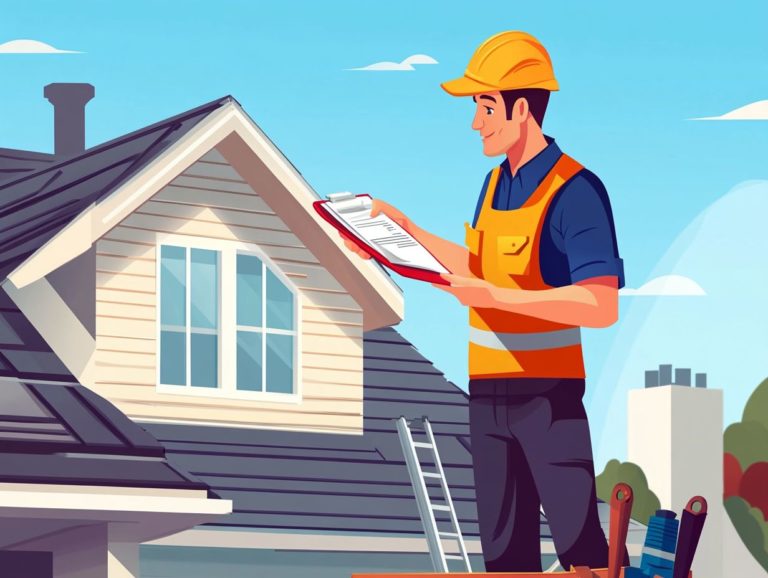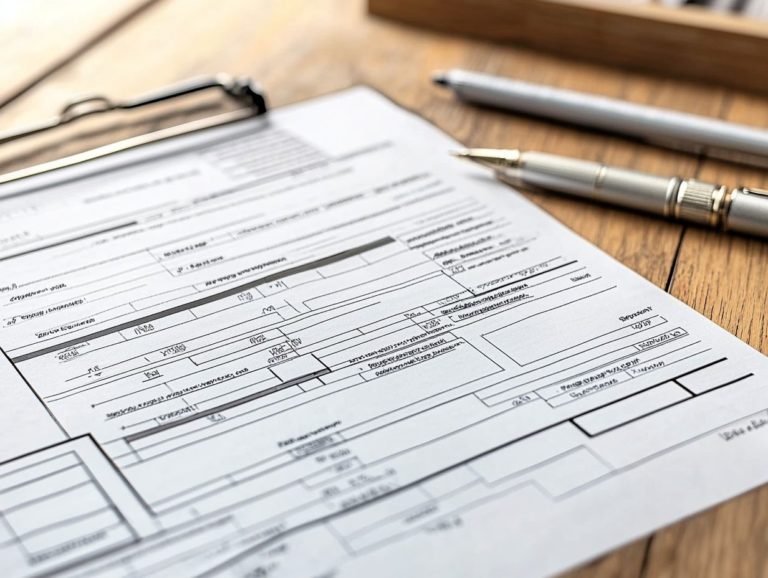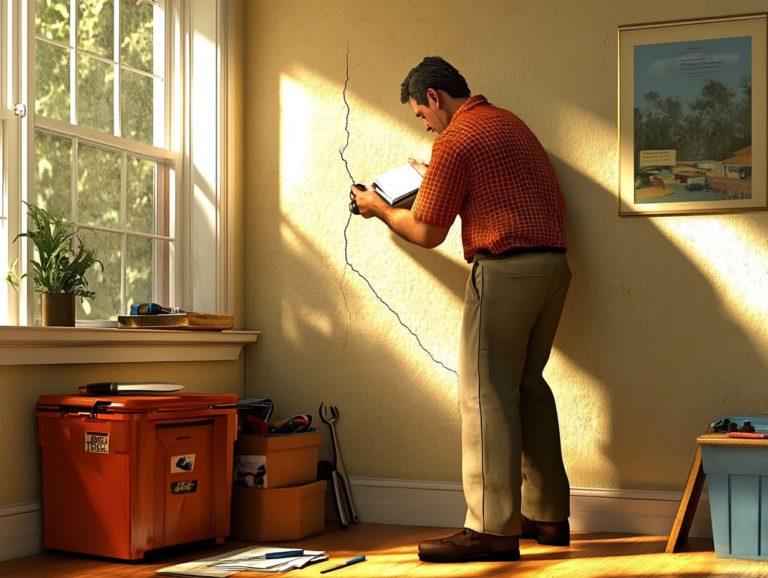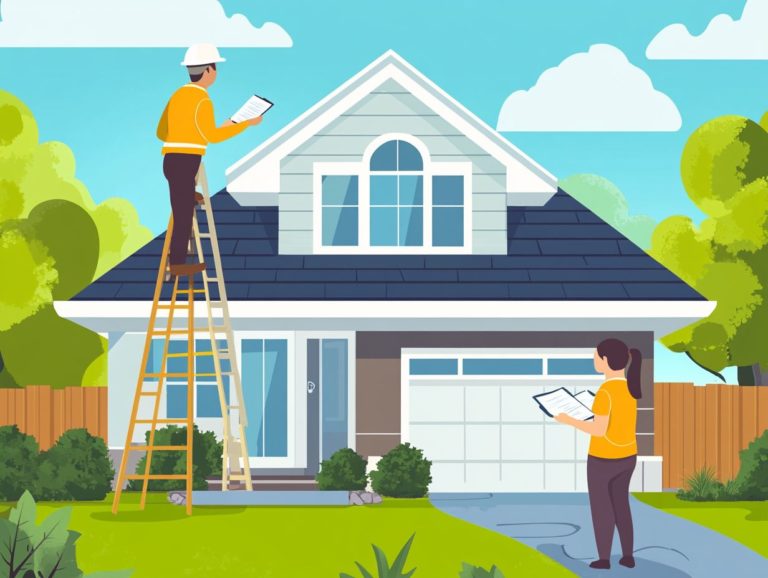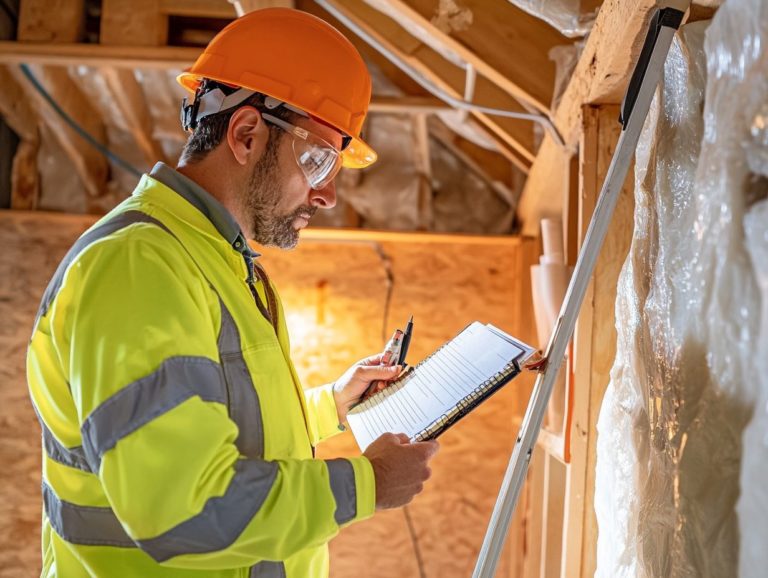The Importance of Home Inspections in Property Transactions
Buying a home stands as one of life s most significant investments. It is essential for you to grasp every facet of your potential property.
Home inspections are paramount in this journey, revealing hidden issues that could sway your decision. This article will walk you through what to expect during an inspection and highlight the common problems that may arise.
It will also delve into how inspections can influence negotiations. Be sure to keep in mind what to look for when selecting a qualified inspector. Engage with this content to ensure you re fully prepared for your property journey.
Contents
Key Takeaways:
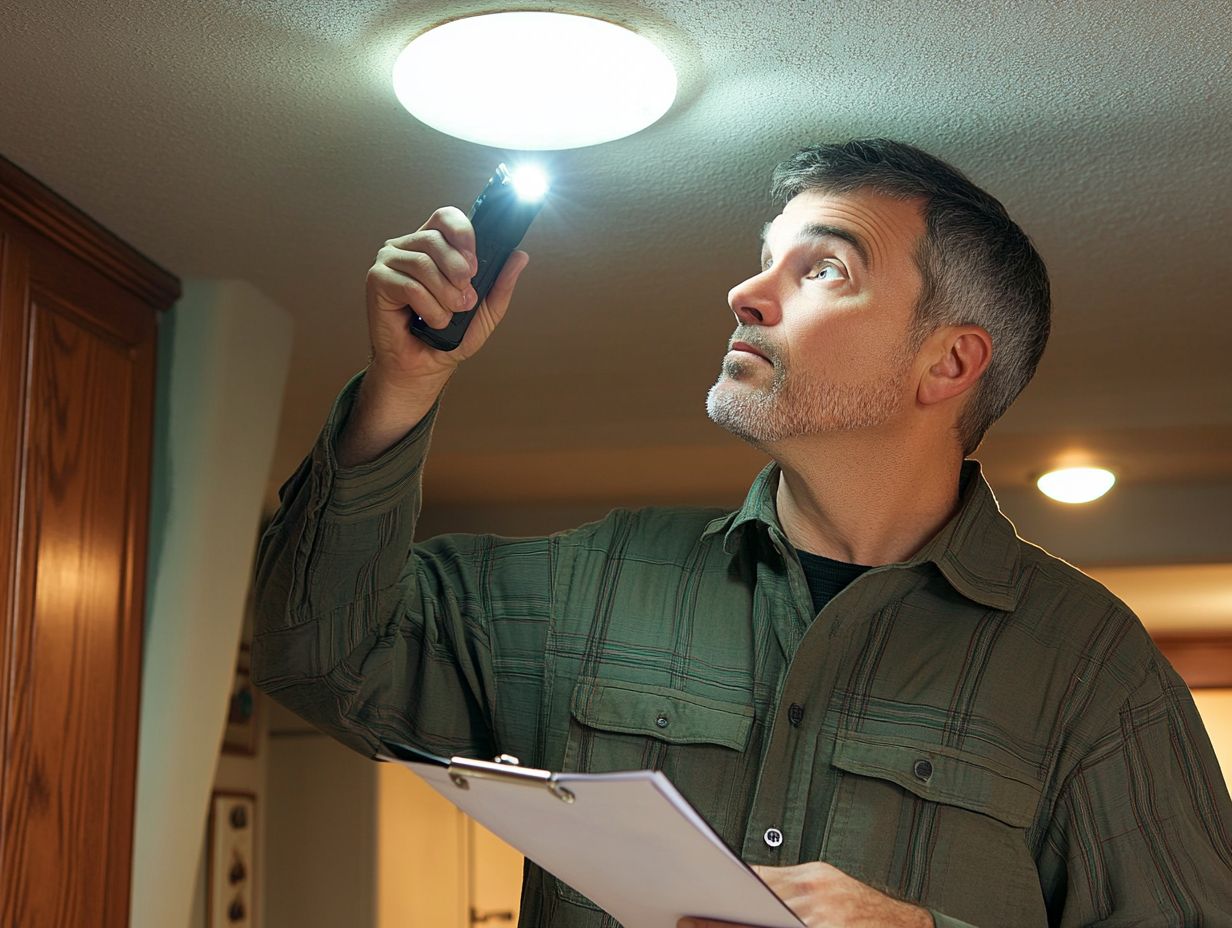
Home inspections are a crucial step in property transactions as they reveal potential issues and help buyers make informed decisions. During a home inspection, the inspector will thoroughly check the property for structural concerns, safety hazards, and the condition of major systems and appliances. Understanding the importance of home inspections in real estate deals can help parties involved recognize how the results can impact negotiations and contingencies, and have legal and financial implications, making it important to choose a qualified and experienced home inspector.
Understanding Home Inspections
Understanding home inspections is essential in the real estate market. It equips you with a comprehensive evaluation of a property’s condition before you commit to any purchase agreement, highlighting the importance of home inspections in real estate.
The process involves hiring a professional home inspector. They meticulously assess various elements of the home, from structural integrity to major systems and potential issues that could impact property value, highlighting the key role of home inspections in real estate.
This critical step not only helps you uncover both minor and major concerns. It also promotes transparency in transactions between sellers and buyers, ultimately paving the way for a smoother real estate experience.
What is a Home Inspection?
A home inspection is a thorough evaluation performed by a professional inspector. It is designed to uncover hidden issues and assess the overall condition of your property.
During this process, the inspector meticulously examines important parts of your home, such as:
- The plumbing system for leaks or corrosion
- The electrical systems for any safety hazards and functionality
- The HVAC systems, which control heating and air conditioning, to ensure optimal heating and cooling efficiency
Each of these elements is vital to the integrity and livability of your home. By providing a detailed report, the inspector equips you with invaluable insights that can guide future repairs and maintenance, enabling you whether you re a current homeowner or a prospective buyer to make informed decisions and negotiate repairs before finalizing any transactions.
Why are Home Inspections Important in Property Transactions?
Home inspections help you uncover major issues that can impact the safety, value, and livability of a home. Understanding the importance of pre-purchase home inspections gives you a powerful tool to negotiate effectively with the seller, especially when unexpected problems arise during the evaluation.
By revealing hidden defects or necessary repairs, home inspectors enable you to make informed decisions. This allows you to possibly adjust your offer based on renovation costs. This proactive approach not only shields you from significant expenses in the future but also gives you a crucial advantage during negotiations.
An informed buyer like you will tackle potential issues with confidence. Don t let hidden issues surprise you after closing. Get informed early to protect your investment and peace of mind.
The Process of Home Inspections
The home inspection process encompasses several meticulous steps designed to provide a comprehensive evaluation of the property.
During this process, the inspector identifies a range of issues, from minor concerns to substantial defects that could impact the property’s integrity and value.
Steps Involved in a Home Inspection
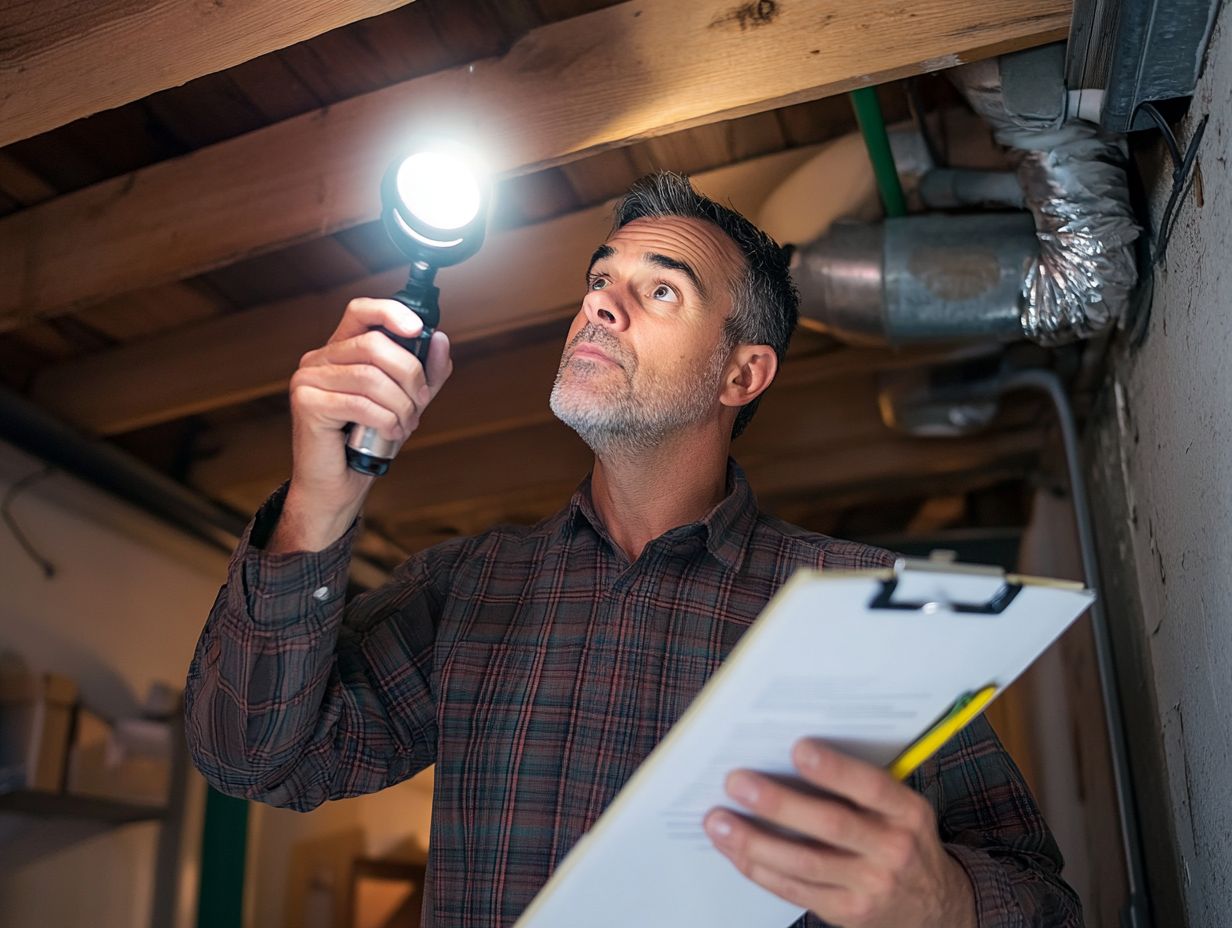
The steps involved in a home inspection typically start with the inspector arriving at the property. They will review their checklist and conduct a thorough evaluation of essential components, including the roof, foundation, and electrical systems.
This process is important because every part matters in the overall safety and integrity of your potential new home. For instance, the inspector checks for safety issues that could pose risks, such as structural weaknesses or outdated electrical wiring, highlighting the importance of a home inspection for buyers.
Plumbing leaks, if left unaddressed, can lead to big repairs later. This is why they receive close scrutiny during the inspection.
The assessment of heating and cooling systems (HVAC) is also key, as improper heating or cooling can greatly affect your comfort and energy costs.
By systematically going through each step, the inspector provides you with a comprehensive overview of the home s condition, enabling you to make informed decisions about your investment.
What to Expect During a Home Inspection
During a home inspection, you can expect the inspector to conduct a comprehensive evaluation of the property. They will identify any issues that might influence the role of home inspections in real estate and ensure transparency in the transaction between you and the seller.
You should anticipate a meticulous walk-through, where the inspector highlights surface-level concerns as well as hidden issues that could require significant repairs later.
As the inspection unfolds, keep communication at the forefront. You’ll have the chance to ask questions and gain insights into various findings.
Understanding the importance of each identified issue is essential. This knowledge enables you to make informed decisions regarding negotiations or future maintenance.
This inspection is your ticket to a safe and sound investment don t skip it!
Common Issues Found During Home Inspections
During home inspections, you will often encounter common issues that pertain to structural integrity and safety. Inspectors frequently pinpoint problems within essential systems, including plumbing, heating and cooling, and electrical wiring, highlighting areas that may require your attention.
Structural and Safety Concerns
Structural and safety concerns are essential elements that emerge during home inspections. An inspector meticulously evaluates the foundation, roof, and electrical systems to ensure the home complies with safety standards.
For example, a compromised foundation may remain out of sight but could indicate serious underlying problems, such as soil erosion or inadequate drainage. Roof damage can cause leaks if overlooked and result in costly repairs if not addressed early on.
As a homebuyer, it s wise to be proactive and seek detailed reports from inspectors. Understanding these critical areas can profoundly influence your purchasing decisions, ensuring that you invest in a safe and structurally sound property.
Major Systems and Appliances
Major systems and appliances think heating and cooling systems (HVAC), plumbing, and electrical systems are absolutely essential in the home inspection process. Their functionality directly influences your home’s safety and livability.
Conducting thorough evaluations of these components is crucial, not just for spotting current issues but also for anticipating future maintenance needs. This proactive approach can save you from expensive repairs later.
If your heating and cooling system is on the fritz, it could lead to uneven heating or cooling, drastically affecting your comfort levels and driving up energy costs. Plumbing problems like leaks or blockages can result in significant water damage and mold growth, which pose serious health risks.
By understanding the inspection process and recognizing potential safety hazards within these systems, you enable yourself to make informed decisions. This ensures a safer and more comfortable living environment for you and your loved ones.
How Home Inspections Affect Property Transactions
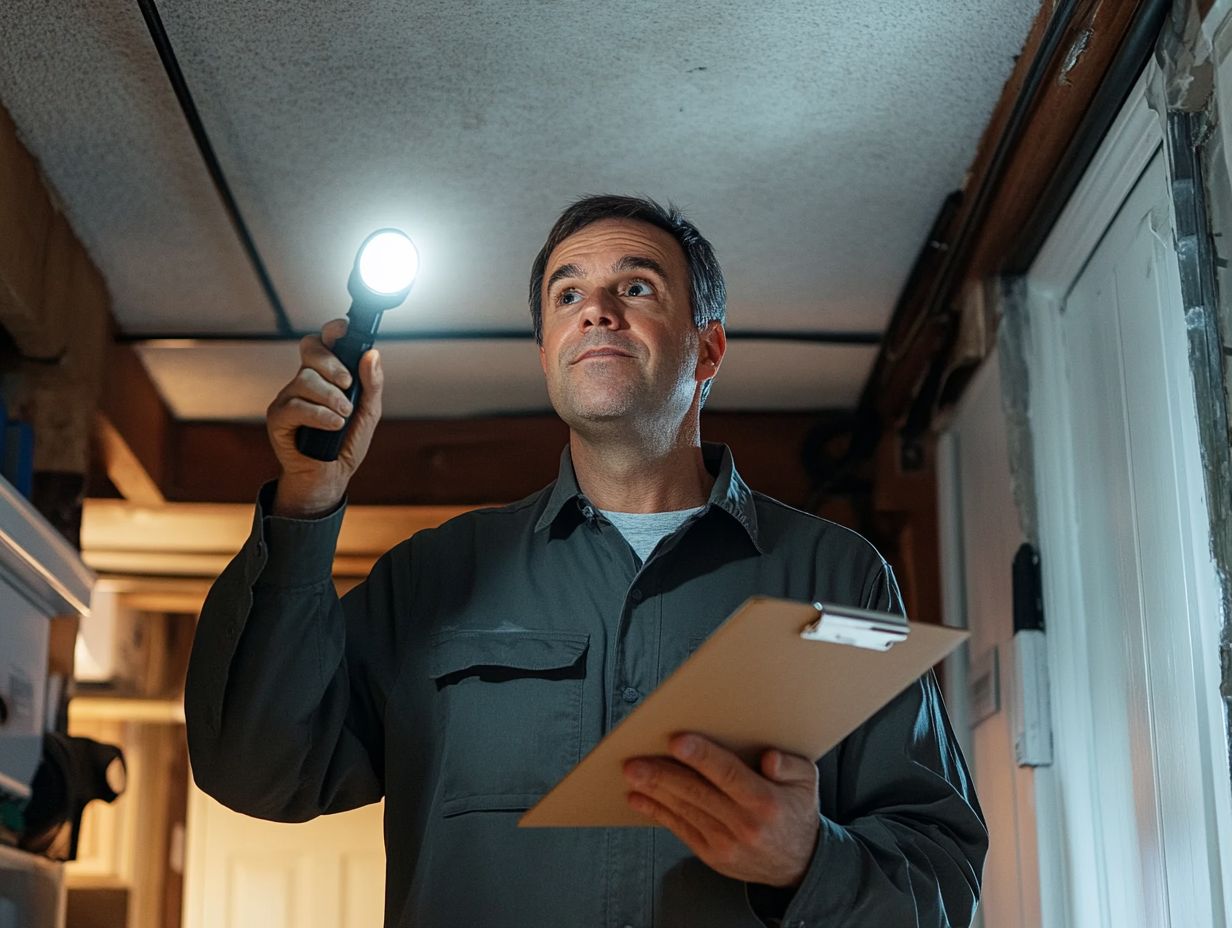
Home inspections play a crucial role in property transactions, as they highlight the importance of home inspections in real estate transactions. These inspections offer essential insights that enable effective negotiations.
With the inspector’s findings in hand, you can address necessary repairs and potentially adjust your purchase agreement. This ensures that you make informed decisions every step of the way.
Negotiations and Contingencies
Negotiations and contingencies are essential in real estate transactions. Home inspections often uncover issues that highlight the role of home inspections in home sales, prompting buyers to request repairs or adjustments in the purchase agreement.
Once you have the inspection report, it’s time to leverage that information to kick off negotiations. You ll likely want the seller to address specific problems or consider reducing the sale price.
This stage is crucial. It opens the door for both you and the seller to discuss possible solutions in a clear and transparent manner.
Common conditions that must be met in the purchase agreement include:
- Requests for repairs
- Credits toward future improvements
- The option to walk away if significant issues remain unaddressed
Your willingness to compromise can help you negotiate effectively. This approach helps you sidestep potential pitfalls that could jeopardize the sale, paving the way for a smoother transaction for everyone involved.
Legal and Financial Effects
The legal and financial effects of home inspections are substantial. The findings can impact your financing options, such as FHA loans, and ultimately influence the property’s market value.
When you discover issues during a home inspection, you may encounter various legal challenges, including disputes over who is responsible for repairs. These issues can complicate the home purchase process significantly.
These findings might prompt renegotiations that alter your initial agreement or even put the appraisal at risk. Lenders typically require a detailed inspection report to determine if the property meets specific financing criteria.
Unexpected renovation costs can strain your budget, leading you to rethink your financing strategies or insurance coverage. These findings can create significant effects throughout the entire transaction, requiring careful consideration and planning.
Choosing a Home Inspector
Choosing the right home inspector can make or break your home buying experience. It’s essential to engage a qualified professional who upholds the rigorous standards set by reputable organizations such as the American Society of Home Inspectors and the International Association of Certified Home Inspectors.
This choice not only safeguards your investment but also provides peace of mind as you navigate this significant transition.
Qualities to Look for in a Home Inspector
When selecting a home inspector, it s essential to evaluate their qualifications, certifications, and experience. These elements significantly impact the quality of the inspection.
A competent inspector should exhibit thoroughness and a sharp attention to detail, ensuring that every corner of the property is scrutinized.
Consider these key qualities:
- Extensive knowledge of various home systems such as plumbing, electrical, and roofing.
- Ability to accurately identify potential safety issues.
- A well-structured checklist that encompasses critical components, helping you spot any defects or hazards.
Prioritizing these specific qualities transforms the home inspection process into a reliable safeguard against unforeseen problems.
Take action now! Don’t leave your investment to chance. Choose wisely, and you will have peace of mind in your home buying journey.
Questions to Ask During the Selection Process
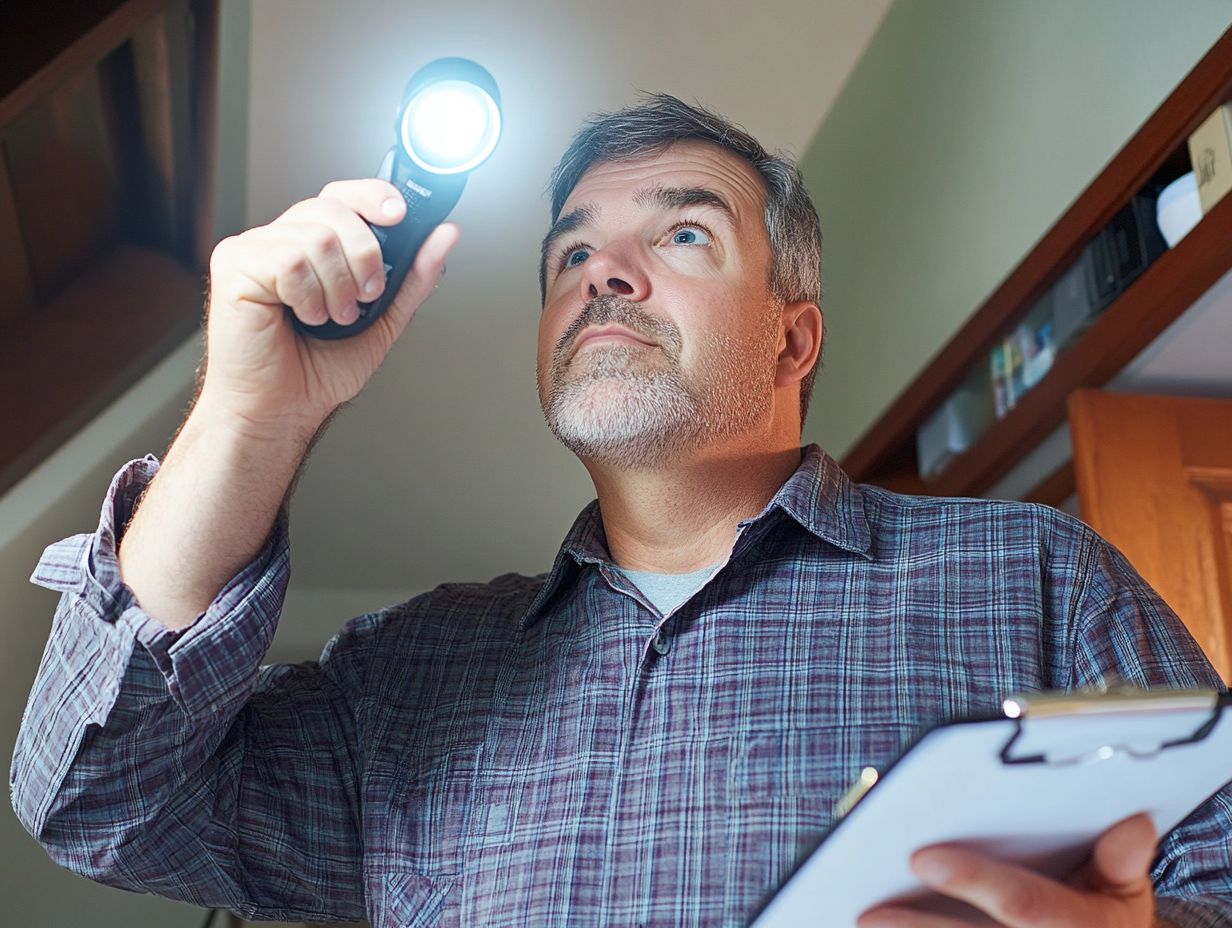
Asking the right questions during the selection process is crucial. It helps you choose a qualified home inspector who meets your needs and can provide a detailed inspection report.
Understand what the inspector specializes in, especially for specialized inspections like pests, mold, or radon. Don t hesitate to ask how they conduct evaluations and what kind of report you will receive afterward.
This insight helps you learn what the inspector discovers and whether they offer any additional services. Clarifying these points boosts your confidence in your choice.
Frequently Asked Questions
Why are home inspections important?
Home inspections are vital because they give buyers a clear view of a property’s condition. They reveal potential issues and highlight the role of home inspections in real estate transactions, helping buyers make informed decisions.
Who arranges the home inspection?
The buyer usually arranges the home inspection. Sometimes, sellers conduct a pre-listing inspection to attract more buyers.
What does a home inspection include?
A home inspection covers the property s overall condition. This includes the structure, roofing, plumbing, electrical systems, and safety hazards.
Why should buyers attend the inspection?
Attending the inspection lets buyers ask questions and understand any concerns. It s also a chance to see if the property meets their expectations.
Can a home inspection affect the sale?
Yes, a home inspection can impact the sale. Major issues can lead to renegotiations or even canceling the sale.
What should buyers do if issues arise?
If issues come up, buyers should talk with their real estate agent. They may need to negotiate repairs, credits, or consider backing out of the sale.
Make sure to ask the right questions to get the best inspection!

